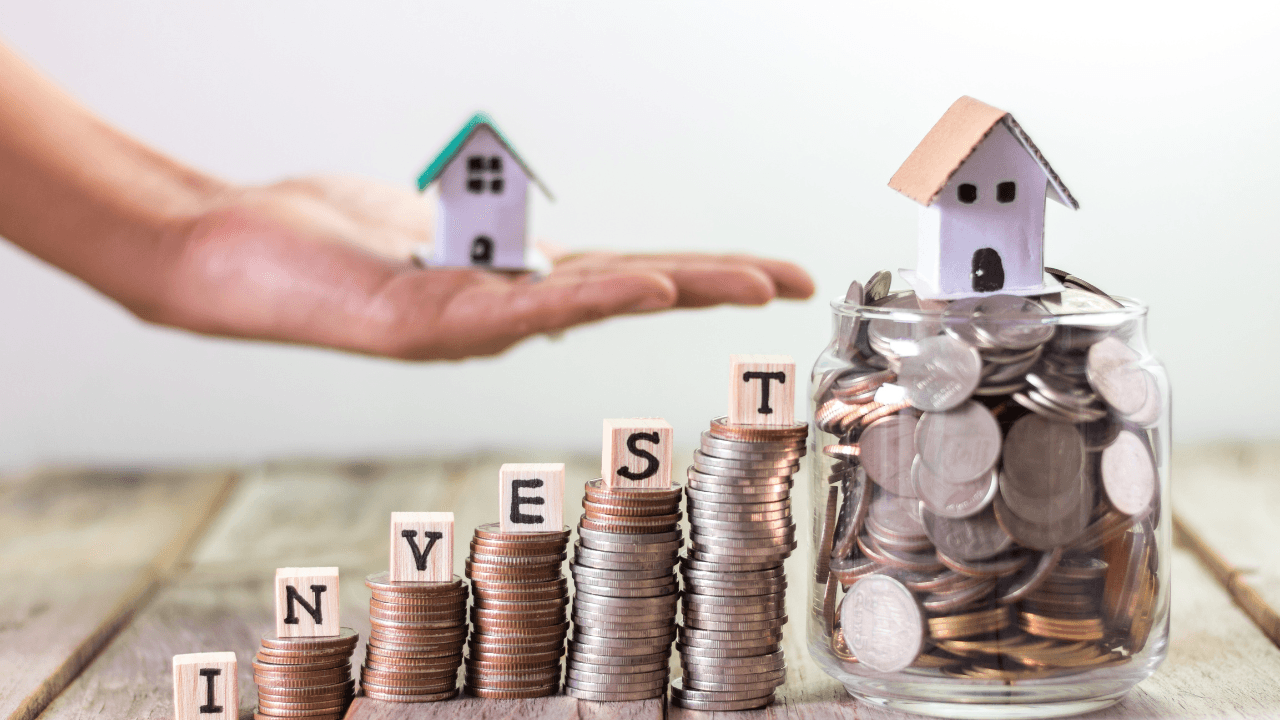Make sure you download ALL my resources for FREE at this link: https://realestateempire.co/
You might be thinking you don’t have enough money to do your first deal, but money is everywhere. Deals are harder to come by, but the world is made of money.
You can invest in real estate with zero money of your own…literally zero money…but the truth is, you’re going to have to be creative. If you don’t have money to work with, you’re going to have to find money to work with.
There’s no such thing as zero down real estate, the money has to come from somewhere. But, as long as it is within the law, it doesn't matter where it comes from. It’s your job to get creative and find that money and piece it together for this deal that you want to accomplish.

How much money do you need to invest in real estate?
First up is your earnest money deposit.
This is money that you put up with the seller after the Letter of Intent is signed. When you put your LOI down, you’re showing that you're interested in buying the property. It also shows the terms at which you are interested in buying the property, and it's typically one to 2% of the purchase price. So depending on the size of your deal, this is going to be one of the biggest expenses that you'll have.
Keep in mind that a lot of these expenses are reimbursable at closing, so once the property closes, you can pay yourself back from the property fund, because these are all upfront expenses that you'll have to cover with a deposit.
At some point in the process, you will have to forfeit that deposit. This typically happens after the inspection, so it depends on what the contract says. Once you say all the inspections are good, and you're ready to move forward with the property, you waive the deposit. That means, if the deal falls through, you can lose your deposit. That’s something to keep in mind, and that's why you want to make sure that you are certain after inspections that you want to go through with the property.
Next, you will have your due diligence costs.
These due diligence costs are typically inspections, surveys, checking the title and other reports on the property. You're going to check leases to make sure all the numbers line up. You’re going to check the finances backing up your investment criteria, and you’re going to check the market again.
If you're looking at a 300 unit property, your inspections are going to be much more expensive than something like a fifth unit, just because of sheer size. You can expect inspection to cost anywhere from five to $30,000. It's difficult to judge, because it depends on where you are in the country. You're gonna have to consider that and do some mental math on your own.
When you set up a property, you're going to create an entire LLC just for that property.
Most of the time, the bank will require that. These costs are typically around 10 to $20,000. They shouldn't really change much depending on the size of the deal. For some deals that are really big, like 20 million plus, the bank will require a couple extra LLCs to hold different parts of the property. That might throw your cost up a little bit, but generally it's in the ballpark of 10 to $20,000.
These bank fees are going to be upfront, so you're going have to put up with around a $3,000 deposit with the bank, and that will go towards your appraisal. Appraisal can get more expensive, dependent on the size of the property.
So, there's the appraisal and the deposit you put up with the bank for the appraisal, as well as some legal fees and bank document processing fees that you're going to pay the bank. Expect this to be anywhere from five to $10,000, depending on the size of the deal.
Another large expense will be your downpayment on the property.
You're going have to put around 20% down, at least.
This is just ballpark baseline, but you're gonna have to find money for that. If you're syndicating, this is already figured out for you. You will be going to investors and they're going to invest in that part of the property.

Now that you know what the costs are going to be, you have to figure out how you’re going to find the money.
Where are you going to find the money if you don't have the money?
Friends and Family
Your first option is going to be friends and family that are willing to take a risk on you.
All of the costs that I mentioned, except the down payments and the rest of the property, are what's called risk capital. Should the deal fall apart before the closing date, you forfeit all the money that you spent on the reports, inspections, title, and the deposit. If you're going to friends and family to ask them to invest with you as risk capital, it's important to let them know how risky that investment is.
It is considerably more risky than just investing in the 20% downpayment of the property, like a syndication.
A Wealthy Partner
Your next option is going to be wealthy partners. If you have a partner who has $10 million in the bank, they're going to be able to cover everything, maybe you're going to joint venture with them, they can cover all of the risk capital and the downpayment and then you get a loan for the rest. If this is the case, you're going to get a much smaller part of the deal because you're not really bringing much to the table.
But the first deal is a first deal. All you need to do is get your foot in the door.
Savings
Your third option is to have money of your own. If you have savings, I would highly recommend taking this option. It's going to be one of the risks that you take, but it will make closing your first deal much more smooth.
A Balanced Partner
Option number four is a partner who can upfront those risk capital costs. You would still have to syndicate this deal if your partner doesn't have the money for the downpayment, but this also gives you the option of raising some of the money yourself to get a bigger deal.
This is a great option if you find a partner who can balance out with your strengths and weaknesses. Maybe you're really good at raising capital, for instance, but you don't have any money of your own to do the deal. Your partner can bring the risk capital and then you can bring the money and then put the deal together amongst yourselves.
The money is out there!
Once you figure out how much money you need, you can get creative and figure out where to find it!
Thanks for sharing. I read many of your blog posts, cool, your blog is very good.
I don’t think the title of your article matches the content lol. Just kidding, mainly because I had some doubts after reading the article.